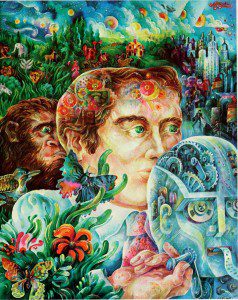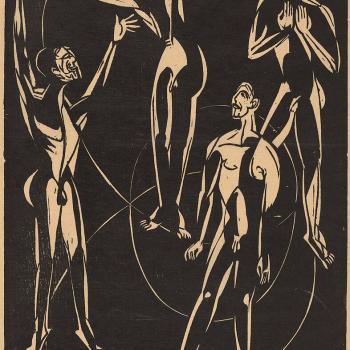
I’ve been pushing a line on 2016. Last week I wrote about the nasty blend of internet cynicism, real-world nihilism, and rampant desire for structures of meaning that has made 2016 so utterly terrible. There, however, I did not attend to something with enough precision: the internet. Its role should not be underestimated.
What if 2016 is merely the logical conclusion of the cultural influences our increased digital connection has made possible? What if the internet is not just a neutral medium for communication, but itself a complex, morally-loaded instrument with social implications, a thing that cannot be divorced from our economic and cultural moment? It is, perhaps, like George Grant said of artistic media in his own time:
Entertainment is used to keep people happy by identifying life as it is with life as it ought to be. Art in a commercial society is used to enfold us in the acceptance of what we are, not as the instrument of a truth beyond us. (Philosophy in the Mass Age)
And yet, it is not. What we can gather from Grant here is that artistic media are not neutral, but the internet, it is clear, does not exist to enfold us in the way life ought to be. This is no longer the idyllic world of Leave it to Beaver, in which televisions stream to American families how they ought to live.
Rather, the internet works dialectically: companies use it to see what we search for and then outfit our screens with ads reflecting those interests. It’s happening around the borders of this blog post right now. It’s not hard, then, to imagine how radicalization and “fake news” happen. Greater connectivity does not mean listening to more voices; it means a lot of the same ones, and often the over-privileging of our own (as I’ve explored here).
The question remains, though: why do we seek out echo chambers? The answer, alas, also has to do with the internet, specifically the ways in which rooted cultures have been dug up in the past decades. The ability to go online, be distracted, even communicate with someone a world away takes away the need for (already at this point in history highly-eroded) communal bonds. And those local bonds that still do matter (say, to teenagers in high school) are now mediated by popularity contests online—Instagram and Twitter follows, Facebook likes, etc. Those who fail there can always retreat into the internet for a sense of community: Reddit, 4Chan, World of Warcraft (a game on which I spent a lot of time as a kid). In short: we like what we like (or have been conditioned to like) and no longer are forced to confront the other; it’s easier than ever to smother ourselves with our own passions.
Add in the newfound possibility of constant anonymity, our deeply disenchanted cultural moment (itself helped along by the globalization behind the internet), and the breakdown of structures of meaning all around us (we’re turning into Nietzschean Last Men, day by day), and you have a recipe for a cynical hellhole of a year—the necessary outcome of all the contingencies that form digital experience.
Why would we expect 2017 to be any different? What lessons can we say we’ve learned? I am not one for prognostication, but, I must admit, the internal logic of digital culture does not offer a glowing forecast.













